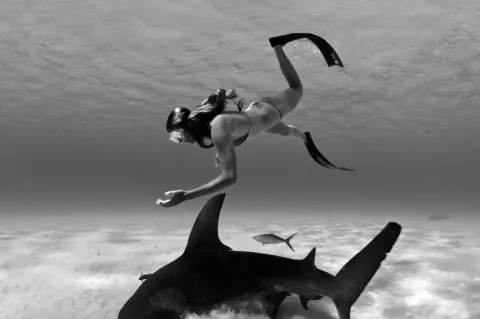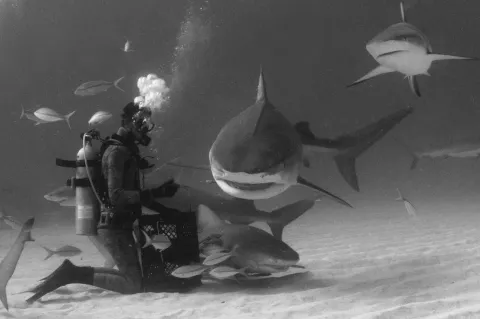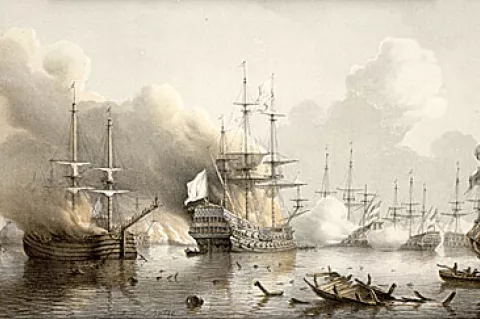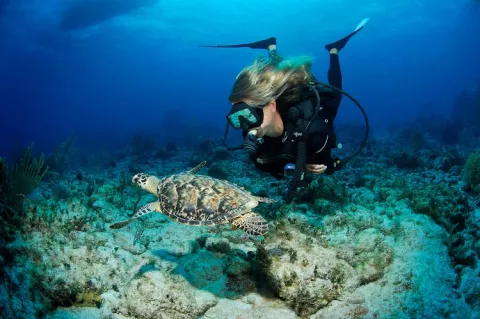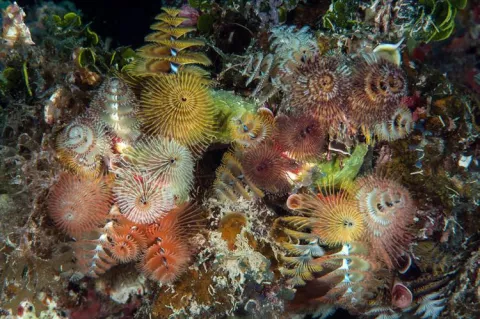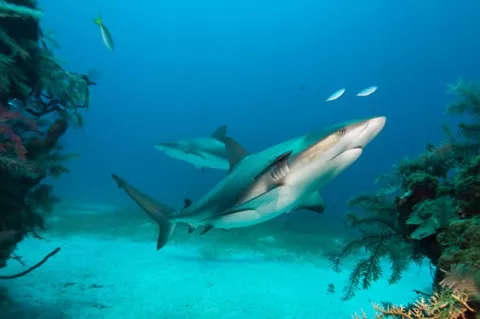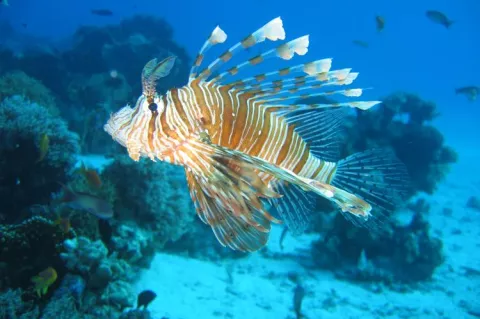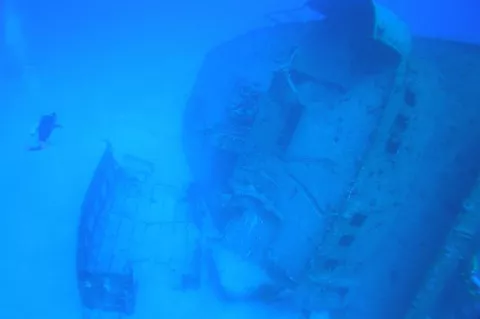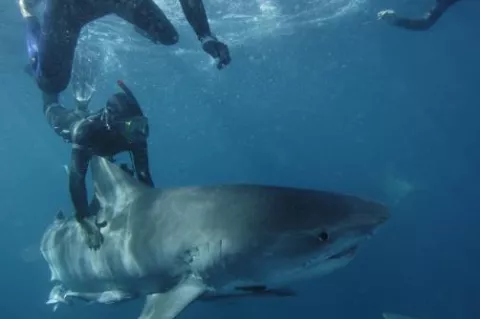The Great Hammerhead Shark
First described in 1837 by the German naturalist Eduard Rüppell, the great hammerhead shark (Sphyrna mokarran) is the largest of the hammerhead shark family and can reach a length of over 6m (20ft), although some specimens have been seen to be much larger than this. However, with overfishing, the great hammerhead is usually observed to be much smaller than this.

